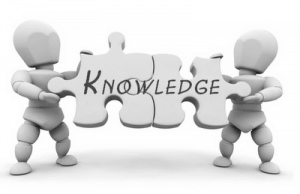Knowledge has to be improved, challenged, and increased constantly, or it vanishes.
Peter F. Drucker
 Any person’s work shall be rewarded. Training at school for a child is his first step of work with the stipulated compensation – evaluation. And the better the child copes with his “work responsibilities”, the higher the score. The mark is not only a fair reward, but sadly also “a stick in the wheels”.
Any person’s work shall be rewarded. Training at school for a child is his first step of work with the stipulated compensation – evaluation. And the better the child copes with his “work responsibilities”, the higher the score. The mark is not only a fair reward, but sadly also “a stick in the wheels”.
Studies on science and humanities provide conscientious attitude of students to the process of acquiring knowledge. First, it is concentration and attention at lesson when the teacher transfer an educational information, and secondly, mandatory homework, and thirdly, visiting additional voluntary courses as needed. In compliance with the general principles of training, established the school, a high mark is usually guaranteed. There are of course some exceptions related to the peculiarities of child’s perception of some subjects. Simply, not everyone can be a mathematician or a chemist. However, this problem can be solved by means of extra-curricular activities with a teacher or tutor.
But there are subjects, “timeless” to persistent tutoring. These are physical training, music and art. Subjects are evaluated on a par with others. Subjects, which basis is not only responsible attitude and discipline, but the child’s aptitudes to such activities.
Let’s draw a small excursion into the theory of aptitudes. As established by science – psychology, aptitude is individual-psychological property of the person, providing high achievements or success in a particular activity. It is success, and in a certain activity. A child with a low aptitude for drawing or music can never get on the subject high mark. A one or two lessons a week in a comprehensive school are unlikely to contribute to the effective development of obvious aptitudes. The same applies to physical education. “Hulking”, “clumsy” mattress is a frequent subject of ridicule for classmates and stable mediocre pupil.
But what if the academic progress in other subjects of the child is assessed high enough? If he cannot get an “A” or “B” (and subsequently to get benefits) only because of “satisfactory” or low rating on physical training or music in the certificate, the situation is quite familiar and common. Of course, in some cases, for example of high academic progress of the child, the teachers “blind eye” to the slowness and clumsiness or work in the style of “avant-garde” and overestimate pupils. But with such actions of the teacher there is always the threat of a “just revolt” by the less successful part of the class.
Perhaps the way out of this situation should be searched in the evaluation of pupil’s achievement. And here it is important to address to the experience of knowledge evaluation in higher and secondary educational institutions, where in some subjects such mark as “pass” is provided. Maybe students’ passing system for assessing physical training, music and art in schools will be a good grade of knowledge as skilled and “unskilled” students? And for the effective development of the child’s existing aptitudes, electives, clubs and sections should remain.

